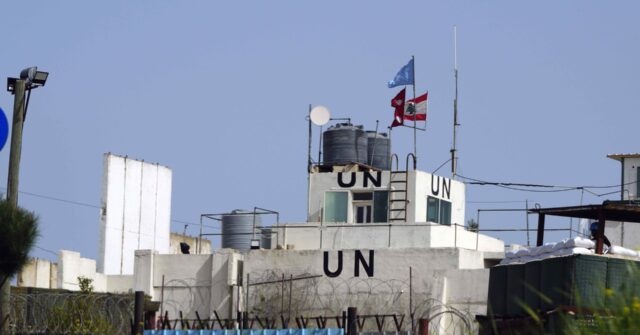Israeli Prime Minister Benjamin Netanyahu’s recent statements have highlighted ongoing tensions in Lebanon, particularly the role of United Nations peacekeeping forces. Following incidents that resulted in injuries to two UN Interim Force in Lebanon (UNIFIL) soldiers and the deaths of two Lebanese Armed Forces (LAF) soldiers, Netanyahu issued a call for the UN to remove its peacekeeping troops, arguing that they have become “human shields” for Hezbollah terrorists. UNIFIL and LAF were mandated to enforce UN Security Council resolutions that prohibit Hezbollah’s presence in southern Lebanon, but their failure to do so has allowed Hezbollah to operate freely, using UN positions to launch attacks against Israel. This plea coincided with international backlash, notably from U.S. Secretary of Defense Lloyd Austin, who implied that Israel had directly targeted UNIFIL.
Netanyahu’s comments underscore a broader military and political strategy in the ongoing conflict with Hezbollah. The Prime Minister articulated Israel’s determination to confront what he termed “Iran’s axis of evil,” which he believes includes Hezbollah and other affiliated groups. He asserted that the Israel Defense Forces (IDF) are actively engaging Hezbollah by targeting their command centers, arms depots, and other military infrastructure. In this context, Netanyahu made a direct appeal to the UN Secretary General, calling for an immediate withdrawal of UNIFIL forces from active combat zones in southern Lebanon. He claimed that the continued presence of these peacekeepers, despite repeated requests for their withdrawal, effectively endangers both their lives and those of Israeli soldiers, as they become embedded within or near Hezbollah’s strongholds.
A key component of Netanyahu’s discourse revolves around the need for proper accountability for Hezbollah’s use of UNIFIL as a protective shield, drawing a parallel to Hamas’s exploitation of UN resources in Gaza. He directed criticism toward European leaders who have been pressing Israel over its military operations, asserting that their focus should instead be on Hezbollah’s actions. Netanyahu framed this conflict not only as a military engagement but also as part of a larger narrative of national survival and counter-terrorism. He referenced ongoing Israeli military efforts in Gaza, particularly regarding the elimination of Hamas and the resolution of hostage situations, while assuring citizens of Israel that their safety and security remain paramount.
Simultaneously, Netanyahu emphasized Israel’s commitment to continue its operations in Judea and Samaria, targeting terrorism in all its forms. He underscored that success in these military operations would not stem from mere rhetoric but from decisive actions. This operational mindset reflects a broader philosophy guiding Israel’s approach to its security concerns amid various regional challenges. The Prime Minister’s insistence on maintaining a low-key public messaging while ramping up military efficacy indicates a strategic pivot in how Israeli leadership communicates during this fraught period.
The recent intensification of conflict and its implications for international relations have triggered widespread commentary from analysts and political figures alike. With Netanyahu’s address coming during a season often marked by reflection and hope for the Jewish community, particularly as Yom Kippur approaches, it framed the conflict within a spiritual and moral context. The invocation of the phrase “g’mar chatima tova,” a wish for a good year inscribed in the Book of Life, was a poignant reminder of the broader cultural significance of these events. It points to the complex intertwining of faith, identity, and national destiny in the face of ongoing violence and strife.
The backdrop of a prolonged military campaign has underscored the difficulty of addressing terrorism while maintaining diplomatic relations with various international bodies. The utilisation of peacekeeping forces has become a contentious issue, raising questions about their efficacy and relevance in rapidly evolving conflict zones like Lebanon and Gaza. As Netanyahu pushes for a recalibration of UNIFIL’s role, he also seems to be sending a signal to both regional and global actors about the necessity for cohesive and immediate actions that address Israel’s security concerns. The approach seeks to redefine peacekeeping parameters to better align with the realities on the ground, ensuring that such forces do not inadvertently compromise Israeli safety.
In conclusion, Netanyahu’s statements convey a resolute stance on Israel’s military operations while seeking to recalibrate international positions regarding the ongoing conflict with Hezbollah and Hamas. By emphasizing the threats posed by these terrorist entities and calling for decisive action from the UN, he aims to reframe the narrative surrounding Israel’s military engagements. The intertwining of military strategy and national identity during this tense period reflects a broader struggle that transcends immediate circumstances, advocating for both survival and ethical responsibility amidst the complexities of warfare and peacekeeping. As the region continues to grapple with these challenges, the dynamics of conflict, identity, and international governance remain particularly critical to the future of not just Israel but also the larger Middle East.

